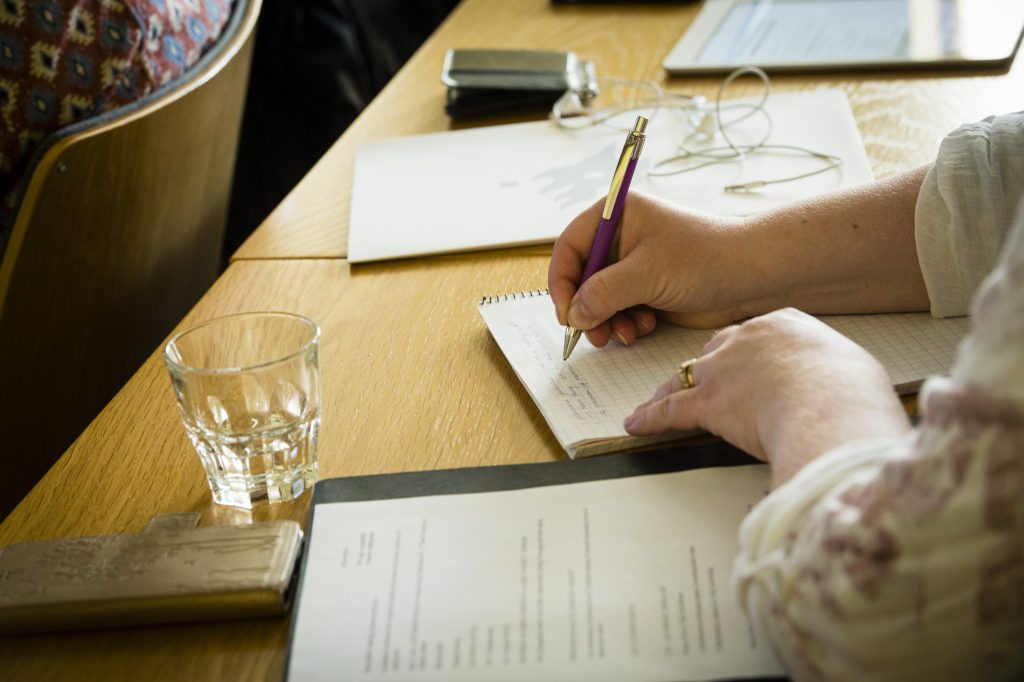By Tuomas Forsberg (HCAS Director 2018–2023)
What advice can be given about academic job interviews? There are plenty of tips and various lists of dos and don’ts on the internet, but here are some of mine. My first piece of advice, however, is that you might want to browse what people have written on academic job interviews. Knowing that the key issues are often very much the same will increase your self-confidence.

By Fauxels, Pexels.com
Having said that, academic job interviews can be very different depending on the position and national or institutional culture and traditions. For some academic positions, such as HCAS fellowships, there are no interviews. Interviews can be superfluous for research grants and arranging them takes a lot of time and effort. However, for a tenured or permanent position, or for a leader or member of a close-knit research group, interviews are normally indispensable. For a teaching position, a demo lesson as well as an interview is a basic rule.
Job interviews are for gathering information
The weight placed on interviews can also vary. Some consider them crucial, while others, such as psychologist Daniel Kahneman, think that they are often overrated and can mislead hiring decisions. In Kahneman’s view, interviews are most useful if the recruiting side knows what kind of information they are looking for in the interviews and can compare the candidates’ performance on the basis of clear standards. Intuition and first impressions are not reliable indicators.
However, very few academic job interviews follow Kahneman’s strict standards. Intuition and first impressions often matter, but they are seldom decisive. If you are the top candidate, first impressions are likely to be more positive than if you are further down the list. Poor performance in interviews can often be forgiven if the interviewers have formed a positive opinion of the candidate beforehand, and particularly if they already know the person. However, the top candidate can sometimes fail so badly in interviews that he or she will no longer be considered for the position. An excellent performance, by contrast, can put you high up on the list, but you will seldom be offered a position solely on the basis of an excellent interview if your other credentials are clearly weaker than those of the top candidates. The purpose of academic interviews is often to weed out unsuitable candidates.
How do we avoid failure in academic job interviews? The worst mistakes are typically that you do not seem to know or cannot explain the substance of your expertise, even when you have conducted research into it. You should be able to explain gaps in your CV or other apparent weaknesses but, in most cases, it doesn’t help to bring these up unless asked. You should know the key requirements of the position and the basic institutional features of the unit that is hiring. You can also fail if you don’t indicate the right motivation for the position, if you show no ability for self-reflection, or if you behave in an arrogant or strange manner. You don’t need to be the nicest person, but you should be able to interact naturally and be on the same page as the interviewers during the interview.
Prepare yourself
When you’re preparing for an academic interview, it helps if you can talk to people who are well informed about the position and the unit. At the very least, you should check the job advertisement, the webpage of the unit, and other relevant material that has been sent to you or is available before the interview. It is also worth gaining some knowledge about the background and profiles of the people who will be interviewing you, if possible.
You should be prepared to answer at least the following questions: What is your motivation in applying for the position?; What is your key (theoretical) contribution to research?; What is your teaching or leadership philosophy (depending on the position)?; What added value can you provide to the unit, or what is your development vision?; and What are your strengths and weaknesses overall?

Photo by HCAS
Consider what you can offer, not what you need or want. Think about the questions you would like to ask when you are given a chance to do so, typically at the end of the interview. Don’t ask how much time for research you will really have, although that is the key question that ambitious scholars usually have in mind when they apply for a new position.
Try to be as articulate as possible and address the issue directly. You can include short anecdotes and examples, but you shouldn’t be too wordy. On the other hand, your answers shouldn’t be too concise either. The best impression is when more questions could have been asked besides those that were prepared, but all the key questions were nevertheless asked in time. Be clear about your strengths but don’t oversell or exaggerate. You may be asked why you think you’re a unique fit for the position, but don’t overstate your uniqueness.
There are also some issues related to appearance and manners. These are often contextual, but being able to read the context could be one aspect of the interview. It’s better to be overdressed than too casual. It helps if you’re polite, but you shouldn’t flatter the interviewers. Sometimes the panel members want to shake hands, but often they don’t, in which case a brief greeting will suffice.
The hardest advice to take is the suggestion not to be nervous, because if you really want the position, you’re likely to be somewhat apprehensive. However, try not to show your nervousness: you should avoid fiddling with your hands, scratching your head, or fidgeting in your chair. Don’t worry if you do find yourself succumbing to nervousness, however. If you’re the top candidate, most interview panels will likely understand your nervousness. They may even forgive some otherwise weak answers because of it.

Tuomas Forsberg and HCAS fellows in the common room of the Helsinki Collegium.